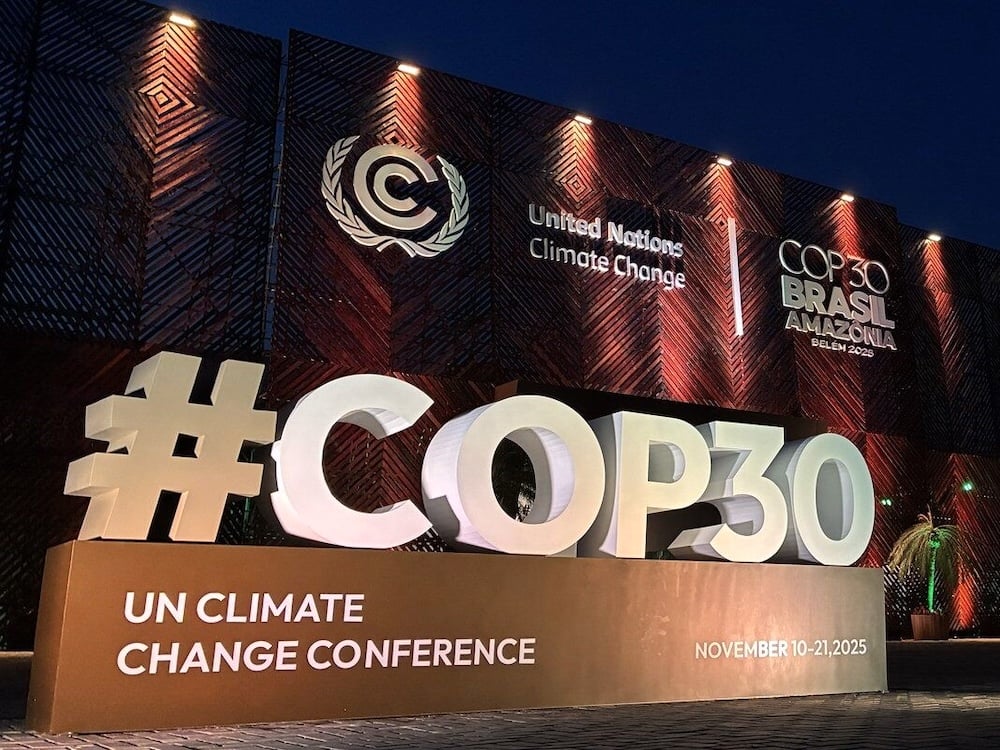Business
Canada’s Climate Commitments Falter Ahead of COP30 Summit

As Canada prepares for the upcoming COP30 climate summit in Brazil, its track record on greenhouse gas (GHG) emissions raises significant concerns. Once a vocal proponent of global climate action, Canada has increasingly deviated from its commitments, failing to meet any GHG reduction targets since 1990. By the end of the 1990s, emissions had surged to 140 million tonnes, reflecting a 23 percent increase from 1990 levels. This trend has continued, solidifying Canada’s position as the only G7 nation whose emissions have risen since that pivotal year.
The roots of Canada’s emissions growth can be traced primarily to the country’s oilsands industry. Following the initial boom in the late 1990s, Canada became the fourth-largest oil producer globally, significantly increasing production levels. In 2024, Canada is projected to produce a record 5.1 million barrels of oil per day, which has contributed to a sharp rise in GHG emissions from the sector. The most recent national inventory for the United Nations outlined that emissions from upstream oil and gas activities nearly doubled from 1990 to 2023, with oilsands emissions alone hitting a staggering 89 million tonnes in 2023.
Policy Directions and Future Projections
Despite its dismal climate record, Canada’s current government appears to prioritize oil production over emission reductions. Alberta Premier Danielle Smith has set ambitious goals for increasing oil production, envisioning an output of eight million barrels per day by 2035. This plan represents a 57 percent increase over Canada’s previous records and does not address the corresponding rise in GHG emissions that such growth would necessitate.
The federal government, led by Prime Minister Mark Carney, is considering implementing an oil and gas emissions cap, a measure aimed at curbing emissions growth. Nevertheless, projections suggest that even with this cap, oilsands production could rise to four million barrels per day by 2030, pushing emissions to an estimated 92.4 million tonnes. This figure would surpass the previous record reported in Canada’s latest GHG national inventory.
The recent federal budget did little to clarify the government’s stance on emissions reduction, indicating a potential shift away from the cap in favor of alternative measures such as carbon pricing and methane regulations. Critics argue that these lack of specifics may dilute the efficacy of Canada’s climate strategy, further entrenching the country’s reliance on fossil fuels.
Global Implications of Canada’s Inaction
Supporters of Canada’s current policies often argue that the nation’s emissions are relatively small compared to larger emitters like the United States and China. However, this perspective fails to acknowledge that countries emitting less than two percent of global GHG emissions collectively contribute to over one-third of worldwide emissions. As highlighted by climate expert Hannah Ritchie, Canada’s emissions are significant when viewed in the context of global climate goals.
To restore its reputation as a leader in climate action, Canada must reassess its priorities. True progress demands a shift away from increasing oil production and a commitment to reducing emissions from the oilsands. The upcoming COP30 summit offers an opportunity for Canada to reaffirm its dedication to global climate initiatives, but this will require substantial changes in policy and public commitment.
As the summit approaches, the world will be watching how Canada reconciles its energy ambitions with its climate responsibilities. The decisions made in the coming weeks could have lasting implications for both national and global climate efforts.
-

 Education3 months ago
Education3 months agoBrandon University’s Failed $5 Million Project Sparks Oversight Review
-

 Science4 months ago
Science4 months agoMicrosoft Confirms U.S. Law Overrules Canadian Data Sovereignty
-

 Lifestyle3 months ago
Lifestyle3 months agoWinnipeg Celebrates Culinary Creativity During Le Burger Week 2025
-

 Health4 months ago
Health4 months agoMontreal’s Groupe Marcelle Leads Canadian Cosmetic Industry Growth
-

 Technology3 months ago
Technology3 months agoDragon Ball: Sparking! Zero Launching on Switch and Switch 2 This November
-

 Science4 months ago
Science4 months agoTech Innovator Amandipp Singh Transforms Hiring for Disabled
-

 Education3 months ago
Education3 months agoRed River College Launches New Programs to Address Industry Needs
-

 Technology4 months ago
Technology4 months agoGoogle Pixel 10 Pro Fold Specs Unveiled Ahead of Launch
-

 Business3 months ago
Business3 months agoRocket Lab Reports Strong Q2 2025 Revenue Growth and Future Plans
-

 Technology2 months ago
Technology2 months agoDiscord Faces Serious Security Breach Affecting Millions
-

 Education3 months ago
Education3 months agoAlberta Teachers’ Strike: Potential Impacts on Students and Families
-

 Science3 months ago
Science3 months agoChina’s Wukong Spacesuit Sets New Standard for AI in Space
-

 Education3 months ago
Education3 months agoNew SĆIȺNEW̱ SṮEȽIṮḴEȽ Elementary Opens in Langford for 2025/2026 Year
-

 Technology4 months ago
Technology4 months agoWorld of Warcraft Players Buzz Over 19-Quest Bee Challenge
-

 Business4 months ago
Business4 months agoNew Estimates Reveal ChatGPT-5 Energy Use Could Soar
-

 Business3 months ago
Business3 months agoDawson City Residents Rally Around Buy Canadian Movement
-

 Technology2 months ago
Technology2 months agoHuawei MatePad 12X Redefines Tablet Experience for Professionals
-

 Business3 months ago
Business3 months agoBNA Brewing to Open New Bowling Alley in Downtown Penticton
-

 Technology4 months ago
Technology4 months agoFuture Entertainment Launches DDoD with Gameplay Trailer Showcase
-

 Technology4 months ago
Technology4 months agoGlobal Launch of Ragnarok M: Classic Set for September 3, 2025
-

 Technology4 months ago
Technology4 months agoInnovative 140W GaN Travel Adapter Combines Power and Convenience
-

 Science4 months ago
Science4 months agoXi Labs Innovates with New AI Operating System Set for 2025 Launch
-

 Top Stories2 months ago
Top Stories2 months agoBlue Jays Shift José Berríos to Bullpen Ahead of Playoffs
-

 Technology4 months ago
Technology4 months agoNew IDR01 Smart Ring Offers Advanced Sports Tracking for $169










